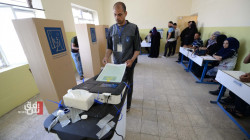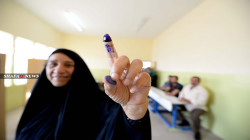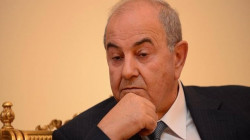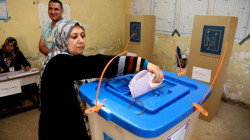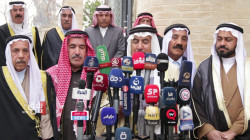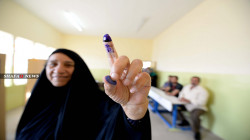Huqooq denounces the election results, warns of "dark and perilous" paths
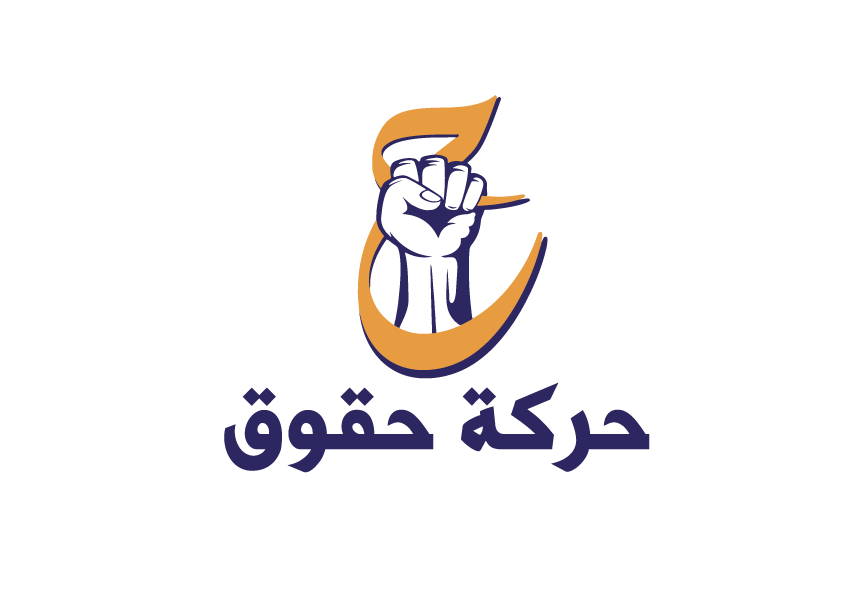
Shafaq News/ Huqooq movement, the political wing of Kata'ib Hezbollah (Iran's most powerful proxy in Iraq), voiced its rejection of the final election results announced by the Independent High Electoral Commission (IHEC), warning of plunging the country into "dark and perilous" paths.
"The election results are illegitimate given the size of manipulation and fraud the will of the voters was subject to in the 10/10 election," a statement of the movement said on Wednesday.
Huqooq said that "IHEC and the Judicial Commission [for the elections] did not look into the evidence-supported appeals it presented "subjectively and impartially."
"We were prompted to withdraw our observers before the completion of the virtual recount they were running because they were prevented from direct observation."
"IHEC's insistence upon wasting the movement's electoral entitlements by keeping the results as they are will spawn a parliament that lacks legitimacy and does not reflect the Iraqis opinion."
The movement called on the Supreme Federal Court to carefully examine the evidence the movement had presented, warning that "what happened on October 10 is a serious deviation from the democratic course we wish to our country. It threatens to plunge the country into dark and perilous pathways."
Iraq's Shiite firebrand cleric Moqtada al-Sadr was confirmed Tuesday as the biggest winner of last month's parliamentary election, that had sparked charges of voter fraud from pro-Iranian factions.
The announcement of the results had been put off for weeks amid tensions over allegations of fraud and violence, that culminated on November 7 in an assassination attempt targeting Prime Minister Mustafa al-Kadhimi, from which he emerged unharmed. The attack was not claimed by any group.
Al-Sadr's movement won nearly a fifth of seats, 73 out of the assembly's total 329, IHEC said, after a lengthy manual recount of hundreds of ballot boxes.
Trailing behind Sadr's bloc in the Shiite camp with 17 seats was al-Fatah (Conquest) Alliance, the political arm of the pro-Iran al-Hashd al-Shaabi (Popular Mobilization Forces-PMF) former paramilitary force, which is now integrated into Iraq's state security apparatus.
PMF leaders had rejected the preliminary result -- which was sharply down from their 48 seats in the outgoing assembly, as a "scam", and their supporters have held street protests chanting "No to fraud".
Their activists have staged sit-in protests outside Baghdad's ultra-secure Green Zone district, where the government, the assembly and many foreign embassies are located.
Despite the significant loss of seats, the Hashed remains a powerful force in the Iraqi political scene, backed by Iran and with a strength of 160,000 fighters.
It can also count on a key ally that made a surprise comeback in the polls, former premier Nouri al-Maliki's pro-Iran State of Law Alliance clinched 33 seats in the legislature.
Analysts have warned that, in a country still recovering from decades of war and chaos, and where most parties have armed wings, political disputes could spark a dangerous escalation.
The final results must now be sent to the federal court for ratification.
The parliament will then hold its inaugural session and elect a president, who will in turn appoint a prime minister to be approved by the legislature.
In multi-confessional and multi-ethnic Iraq, the formation of governments has involved complex negotiations ever since a US-led invasion toppled dictator Saddam Hussein in 2003.
Posts and ministries have typically been handed out according to compromises reached by the main blocs in backroom talks, rather than to reflect the numbers of seats parties have won.
Al-Sadr, a former leader of an anti-US militia who has often surprised observers with his political manoeuvres, has called for a "majority" government with other leading blocs, possibly excluding powerful Shiite actors like al-Fatah.
Analysts said he could strike deals with Sunni and Kurdish groups, such as those of outgoing parliament speaker Mohammed al-Halboosi's bloc, with 37 seats, and/or the Kurdistan Democratic Party (KDP), with 31.
